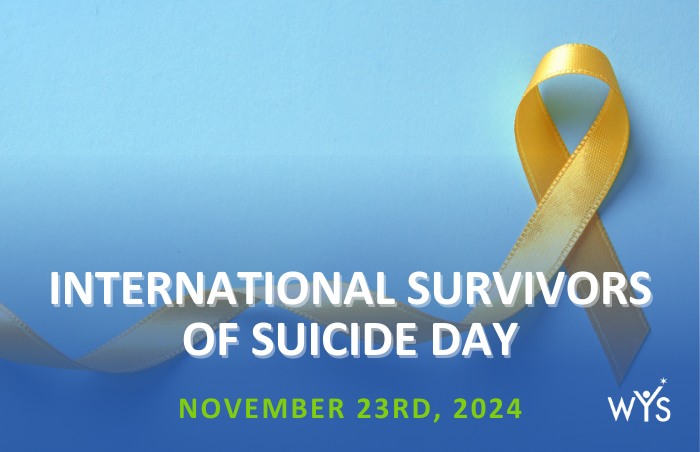
International Survivors of Suicide Day, observed on the Saturday before Thanksgiving, reminds us of the impact of suicide on individuals, families, and communities. Established in 2005 by the American Foundation for Suicide Prevention (AFSP), this day creates space for those affected by suicide to gather, share their experiences, and find comfort in knowing that they are not alone. By promoting both awareness and understanding, we can build resilience within grieving individuals and work towards suicide prevention.
Understanding the Impact of Suicide
Suicide is a pressing issue, particularly among adolescents. According to the Centers for Disease Control and Prevention (CDC), suicide is the second leading cause of death among young people aged 10 to 24 in the United States. Additionally, one in five adolescents have experienced a mental health condition, which can significantly increase the risk of suicidal behavior. The presence of Adverse Childhood Experiences (ACEs) can make mental health challenges even worse, highlighting the importance of creating supportive environments.
Tips for Coping with Grief
Grieving the loss of a loved one to suicide can be an incredibly complex and painful process. This Survivors of Suicide Day, we are sharing some helpful tips for coping with unimaginable grief during this difficult time:
Acknowledge Your Feelings: It’s essential to keep in mind that grief can manifest in various ways, including anger, guilt, and confusion. Allow yourself to feel and express these emotions without any judgment. For more information on the grieving process, visit The Grief Recovery Method.
Seek Support: Connecting with others who have experienced loss in a similar circumstance can help to provide both comfort and understanding. Consider joining a support group or attending community events related to suicide prevention. To find a local support group, check out AFSP’s Support Group Locator.
Honor Their Memory: Make a tribute to your loved one, whether through a personal endeavor, writing a journal entry, or participating in remembrance events. These activities can help to keep their spirit alive and bring a sense of meaning to your grief.
Practice Self-Care: Caring for your physical and emotional well-being is crucial during this difficult time. Get involved in activities that promote relaxation and joy, such as exercise, art, or spending time in nature. For self-care tips, visit Mental Health America.
Seek Professional Help: If your grief feels overwhelming, consider reaching out to a mental health professional. Counseling can provide a safe space to process your feelings and develop coping strategies. To find resources, visit our website to get connected.
Honoring Those Lost to Suicide
On International Survivors of Suicide Day, we honor those who have lost their lives to suicide by sharing their stories, remembering their unique qualities, and celebrating their impact on our lives. Taking part in community events can also create a powerful sense of remembrance and healing. When we participate in awareness campaigns, we help to break the stigma surrounding mental health and form a supportive environment for those affected by suicide.
As we navigate the disparities of grief and loss, it’s essential to remember that healing is possible. By fostering resilience through connection, understanding, and support, we can honor the memories of our loved ones while advocating for suicide prevention. Let us continue to engage in conversations about mental health, support one another, and work towards a future where fewer lives are lost to suicide.
Resources
- WYS Counseling Services: Find the best fit for your needs.
- American Foundation for Suicide Prevention: AFSP
- National Suicide Prevention Lifeline: Call 1-800-273-TALK (8255) or text “HELLO” to 741741 for support.
By sharing this pertinent information and utilizing the listed available resources, we can empower ourselves and others on the journey toward healing and resilience.
If your child or a young loved one is struggling with a mental health concern, we encourage you to reach out to a mental health professional or to contact an Access Coordinator at Western Youth Services by sending an email to [email protected] or by calling us toll-free at 888-312-0406.
Orange County, State and National resources can be found on our site here: https://www.westernyouthservices.org/resources/.






